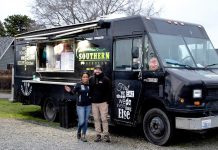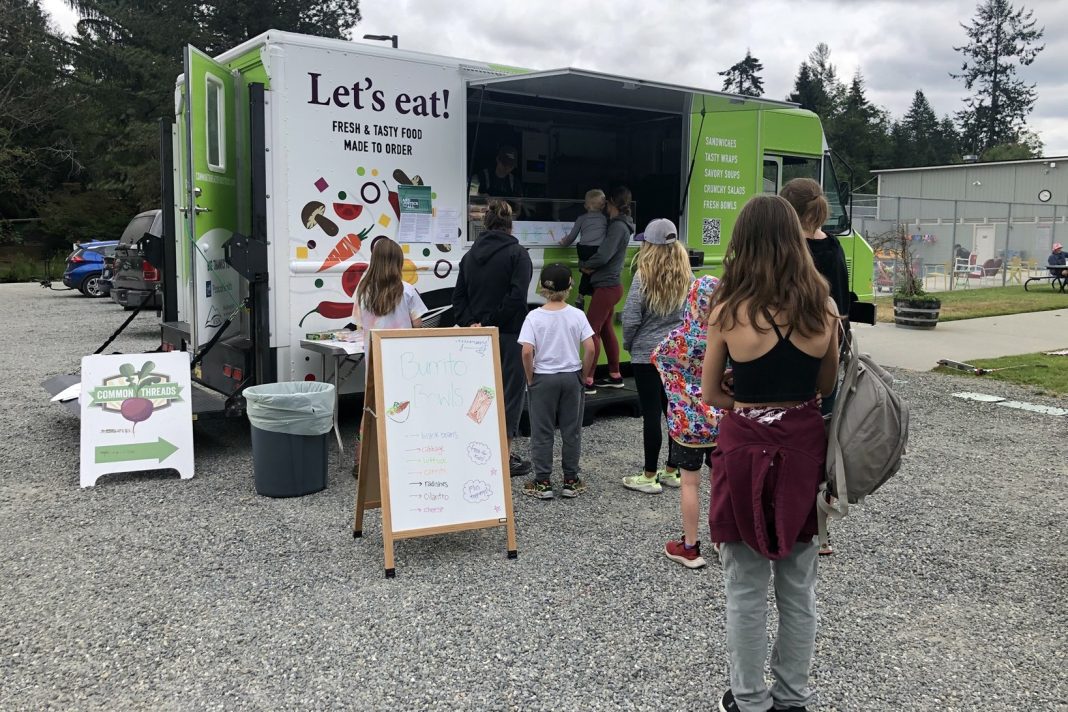“Food deserts” are defined as urban areas that lack access to affordable or healthy foods, contributing to the food insecurity that afflicts tens of millions of Americans. In Bellingham, Birchwood Food Desert Fighters (BFDF) works to provide mutual aid, education, and advocacy for neighbors facing one such crisis.
“Birchwood Food Desert Fighters started when, in 2016, the Albertsons closed in Birchwood and everyone assumed another grocery store would go in, because [it] had been there for 35 years,” says co-founder Tina McKim. “Then we found out that there were non-compete clauses on the building and all of the surrounding buildings in that shopping center, which prevented a grocery store from going in. We thought that was a major injustice.”
Today, Birchwood Neighborhood still only has grocery access to fresh produce from one aisle of Netos Market and a seasonal farmer truck. Neighbors and allies from other neighborhoods and organizations founded BFDF to meet immediate needs and push for change.
“We work to restore grocery access to the neighborhood and to build food sovereignty in the neighborhood through growing food and sharing food —and meeting immediate food needs, as well,” McKim says. “Our goals are to have culturally appropriate, accessible foods for everybody.”
Mutual Aid
Birchwood Food Desert Fighters’ work has included both legislative and local grassroots initiatives.
“We did vigils for many years, and protests and letter writing campaigns, to get the non-compete clauses lifted and get a grocery store back in there,” McKim continues.
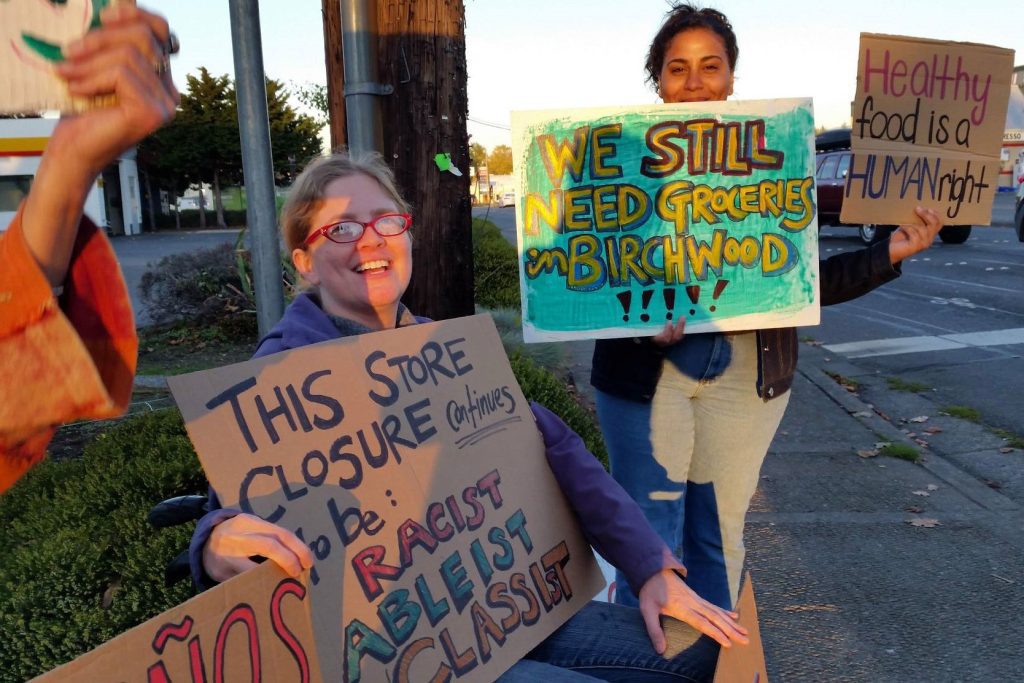
These clauses are now lifted as of 2024. But BFDF’s work continues in promoting food sovereignty outside of the corporate food system and building networks of growers in the neighborhood.
This begins with building community networks of people growing and sharing foods for one another within the community and teaching skills for how to grow some foods themselves.
“We realize not everybody has the ability to farm,” says McKim. “Not everybody has the ability to even have a pot of basil and keep it alive. But if we can teach one or two people how to do that, and if people who really love to do it have the time and space and the skills to do it, they can grow lots more to share.”
BFDF hosts a Saturday Share Spot, where they give away 1,000 to 2,000 pounds of food each week to nearly 100 attendees.
“We have a series of food boxes around the neighborhood,” McKim says, “and people can use them like Little Free Libraries: it’s share what you have, take what you like.”
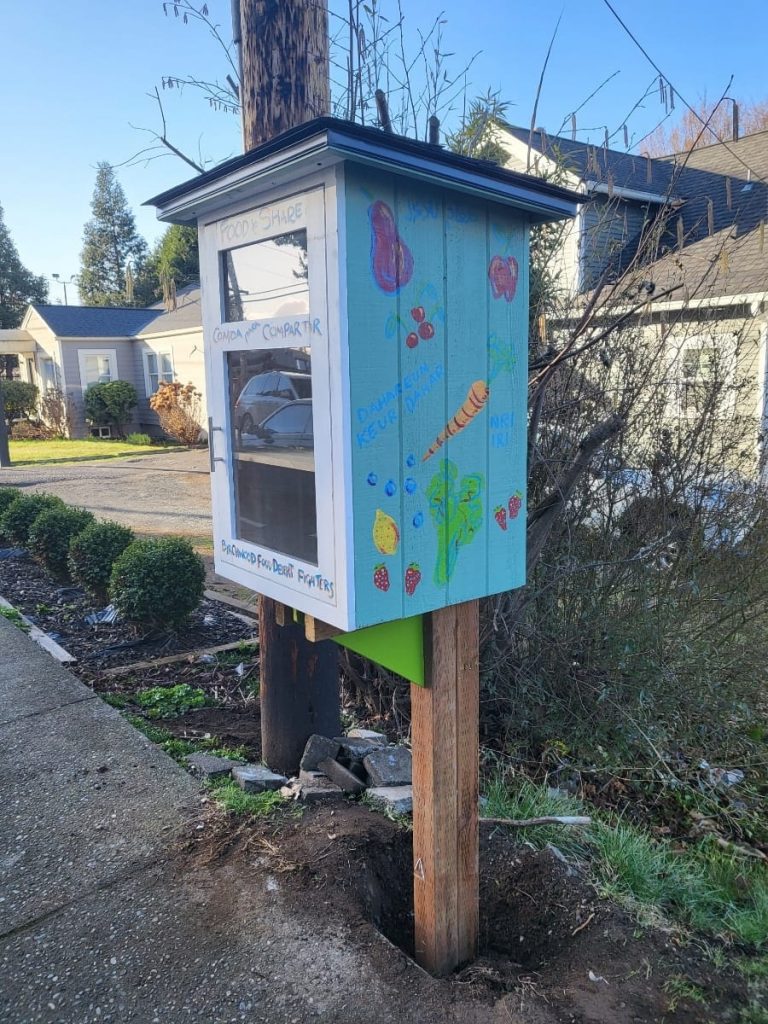
Moving Forward
As McKim explains, Birchwood Food Desert Fighters’ work continues to advocate for an affordable grocery to move in, as corporate outlets can be gentrifying forces.
“Now that we have the non-compete clause lifted, we can get groceries back into the neighborhood that are culturally appropriate,” says McKim. “Birchwood is one of the most racially and ethnically diverse neighborhoods in Bellingham, one of the poorest neighborhoods, with many disabled people, queer people. We want everybody to feel welcome in the place they go to access this very basic need of food. There’s that long term goal and we want it to [create] good jobs for the community too.”
BFDF has partnered with food growing and equity organizations such as the Racial Justice Coalition, Food Empowerment Project, PNW Plateful, City Sprouts Farm, CTK Farm, and Skywood Food Forest, and local churches.
“There’s a core group of about 15 of us on the organizing side of things,” McKim says. “But we’re a community mutual aid organization, and so a lot of people come and go. The people who come to the Share Spot help set up the Share Spot; they’re part of it. And we have community meetings [where anywhere from] 10 to 100 people show up.”
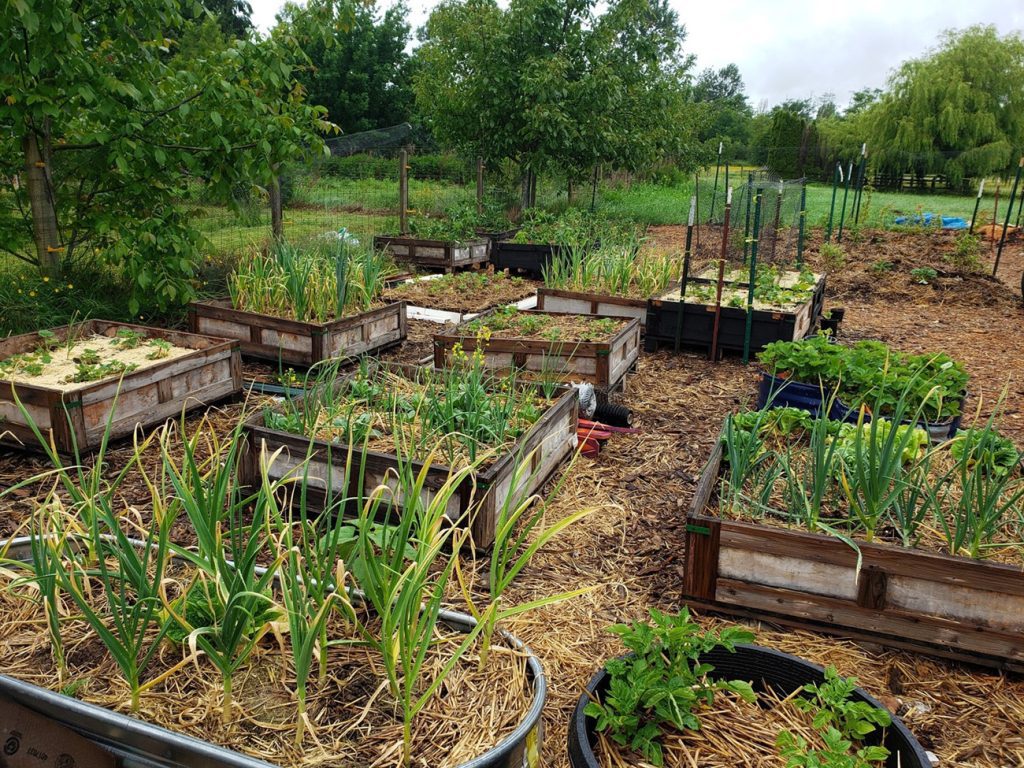
Volunteer Opportunities
The group encourages community members to aid in food distribution: pickup, delivery, and returning of crates and other farm supplies.
“Working with people in the community has been really positive,” says McKim. “Because it’s the community’s ideas being put into action; it’s not some outside group coming in and saying, ‘We’ve fixed your problem for you.”
BFDF welcomes new food donations and will coordinate to preserve extra perishables.
“We always welcome any kind of foods to share; we just ask that people label what they make,” says McKim. Often during the harvest season, the group finds itself with an abundance of, say, donated apples or opportunities for folks to harvest them. “People can only eat so many apples at once, so we can applesauce and save it for later in the year.”
To get involved, please visit the BFDF Facebook, Instagram, or X (Twitter), or email birchwoodfooddesert@gmail.com.





















